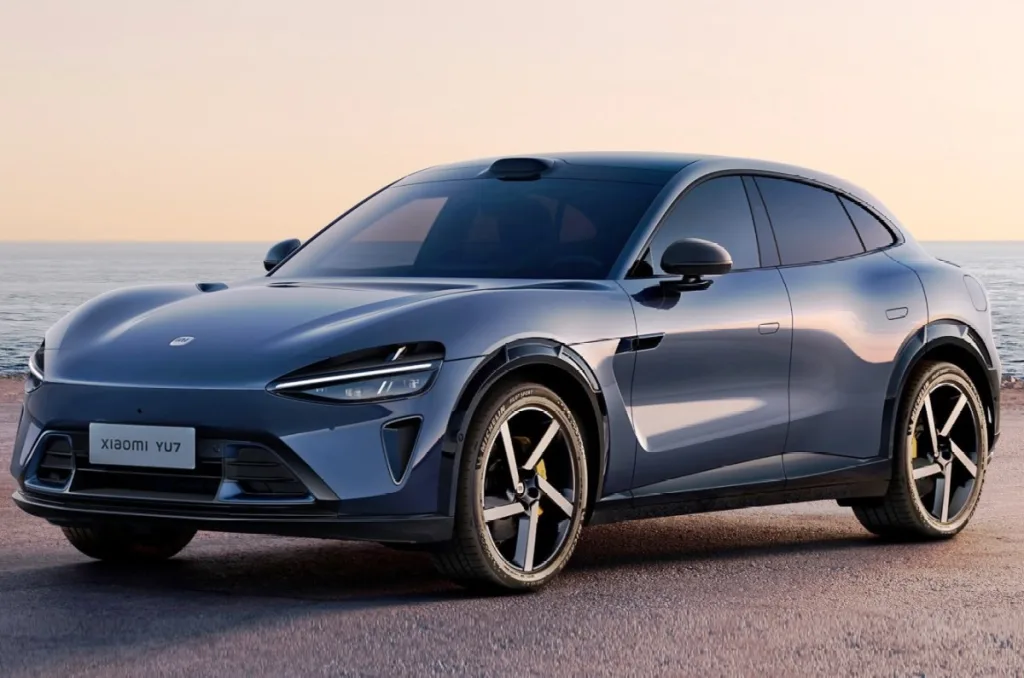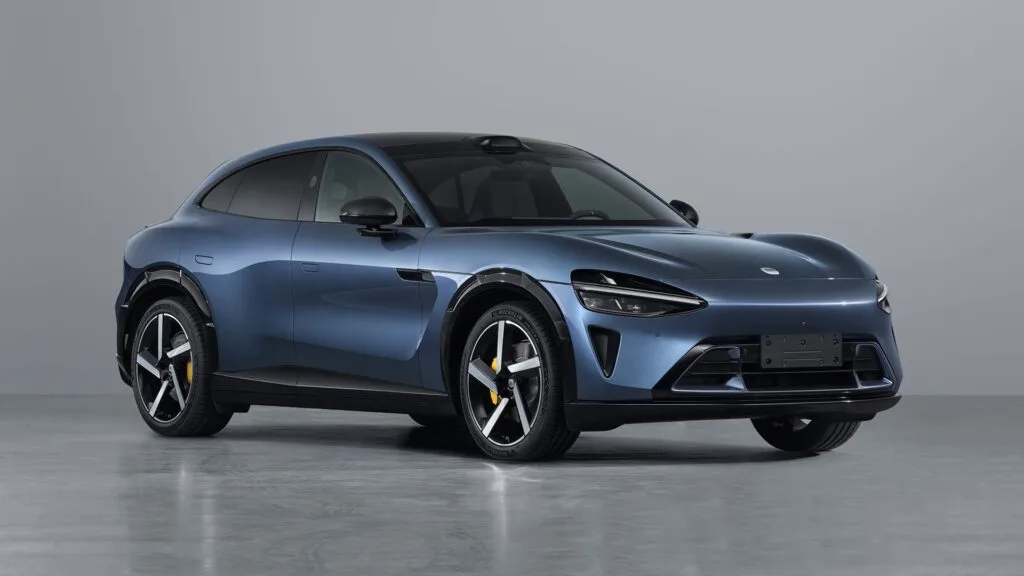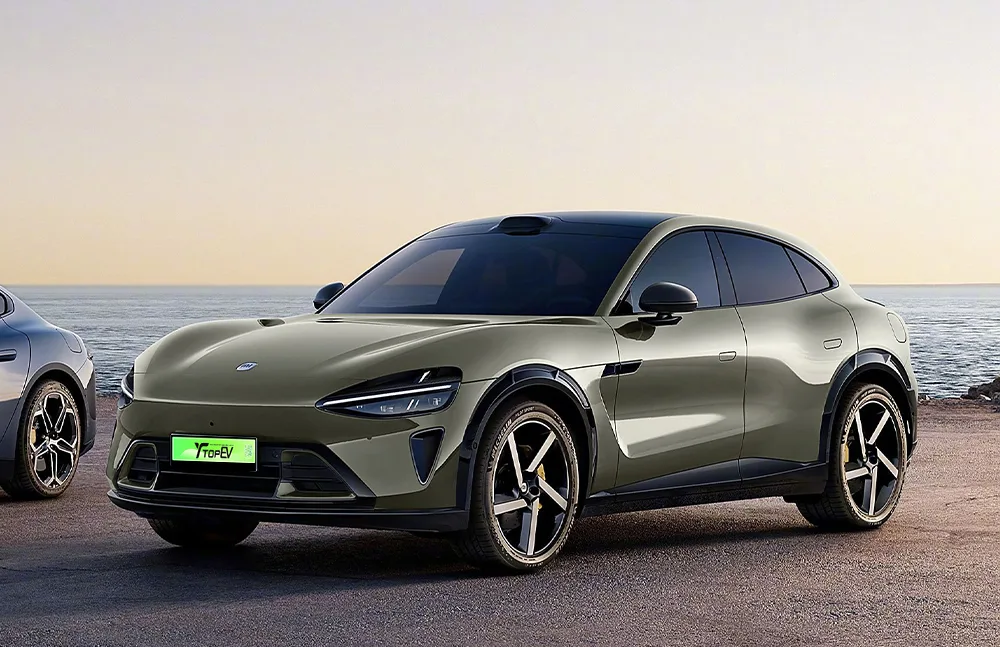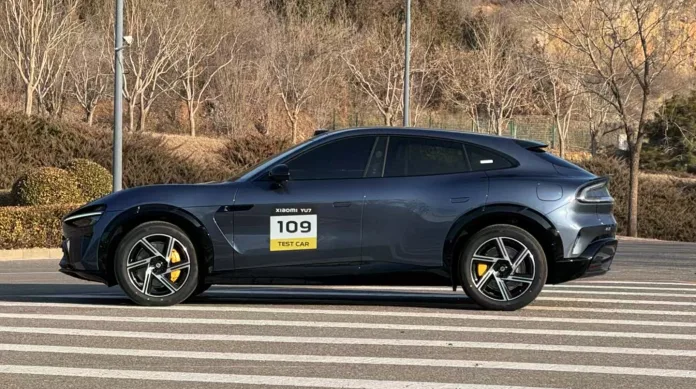In a move that’s sending shockwaves through the automotive industry, Xiaomi, the tech giant known for its smartphones and consumer electronics, is gearing up to launch its second electric vehicle – the YU7 SUV. This bold step comes hot on the heels of their successful SU7 sedan, proving that Xiaomi is dead serious about making its mark in the EV world.
Xiaomi’s Bold Move: From Smartphones to Electric SUVs
The YU7: A Glimpse into the Future of Electric SUVs
Xiaomi’s CEO, Lei Jun, recently teased the YU7, giving us our first look at this sleek and powerful electric SUV. Set to hit the Chinese market in mid-2025, the YU7 is poised to challenge established players like Tesla and shake up the electric SUV segment.
Key Features of the Xiaomi YU7:
- Powerful Performance: 681 bhp, All-Wheel Drive
- Impressive Dimensions: 4,999 mm length, 1,996 mm width, 1,608 mm height
- Spacious Interior: 3,000 mm wheelbase
- Advanced Technology: LiDAR sensor for enhanced driver assistance
- Customization Options: 26 different wheel designs

From Concept to Reality: The YU7’s Journey
Xiaomi’s journey from a smartphone manufacturer to an EV powerhouse is nothing short of remarkable. The company has leveraged its expertise in technology and design to create a vehicle that’s not just environmentally friendly, but also a joy to drive and behold.
Under the Hood: The YU7’s Impressive Specs
The Xiaomi YU7 is set to offer multiple powertrain options, catering to a wide range of drivers:
| Variant | Motor Configuration | Power Output |
|---|---|---|
| Base | Single rear motor | 315 bhp |
| Mid | Dual motor (AWD) | 490 bhp |
| Top | Dual motor (AWD) | 681 bhp |

Battery and Range: The Heart of the Electric Beast
While Xiaomi has yet to reveal the exact battery capacities, industry experts speculate that the YU7 will feature:
- LFP (Lithium Iron Phosphate) battery for the base model
- NMC (Nickel Manganese Cobalt) batteries for higher trims
- Expected capacities ranging from 73.6 kWh to 101.7 kWh

Design Philosophy: Where Function Meets Elegance
The YU7’s design language closely follows that of its sedan sibling, the SU7. With its sleek lines, bold LED lighting signature, and aerodynamic profile, the YU7 is a testament to Xiaomi’s commitment to both form and function.
A Nod to Luxury: The Ferrari Purosangue Connection
Eagle-eyed car enthusiasts might notice a striking resemblance between the YU7 and the Ferrari Purosangue. This comparison is not unfounded, as both vehicles share similar design elements, including:
- A distinctive dip in the hood
- Straight daytime running lights splitting the headlights
- Black-finished wheel arch protectors
The Road Ahead: Xiaomi’s EV Ambitions
Xiaomi’s entry into the electric SUV market with the YU7 is just the beginning. The company has ambitious plans for its automotive division, including:
- Expanding its EV lineup
- Investing in charging infrastructure
- Developing cutting-edge autonomous driving technology
The Future is Electric: Xiaomi’s Vision for Sustainable Mobility
As we eagerly await the arrival of the Xiaomi YU7, one thing is clear: the electric vehicle revolution is in full swing. With tech giants like Xiaomi entering the automotive space, we’re witnessing a convergence of cutting-edge technology and sustainable transportation.
The YU7 represents more than just another electric SUV – it’s a bold statement from Xiaomi, showcasing their ability to innovate across industries. As we look to a future where electric vehicles dominate our roads, the Xiaomi YU7 stands as a testament to what’s possible when visionary tech companies set their sights on revolutionizing mobility.
Stay tuned for more updates on the Xiaomi YU7 as we approach its launch date. The future of electric SUVs is looking brighter – and more exciting – than ever before.
Also read- Get Ready for Suzuki-Toyota’s 200 Km Range Electric Van, Coming in 2025
FAQS
When will the Xiaomi YU7 be available for purchase?
The YU7 is expected to launch in China around June or July 2025.
What is the expected price range for the Xiaomi YU7?
While official pricing hasn’t been announced, estimates suggest a range of CNY 300,000 (approx. $34,000) to CNY 400,000 (approx. $48,000).


